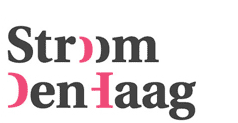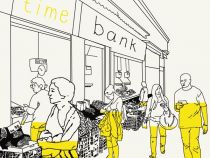Time/Bank workshop: The Artist as Producer
What the artist as producer will, but most importantly could, become in the post-welfare landscape
Woensdag 12 oktober, 11.00-13.00 uur
Presented by Stroom Den Haag
Locatie: De Vleeshal, Zusterstraat 7, Middelburg
Voertaal: English
Deze Time/Bank workshop wordt georganiseerd in het kader van de tentoonstelling I Can't, I Can, I Care over productie, presentatie en distributie in De Vleeshal in Middelburg. Sprekers zijn: Noah Brehmer, Chris Lee, Maaike Lauwaert en Nathalie Hartjes. Scroll naar beneden voor meer programma informatie.
It's becoming old news but the world as we knew it, is on the brink of a
violent collapse. The changes in our welfare states, economic
structures and political landscapes will have direct implications for
the laborers that were operating within its former contexts and forms.
The disappearance of subsidised infrastructure for the production of art
will lead to artists [re]identifying as part of a larger, now
threatened, culture of work. We hence need to ask what the repercussions
will be of a post-welfare state landscape for the subsidised creative
sector and producer, but also and crucially, what measures can be taken
in the present to better the conditions of a future which is already in
the making. Could mutual-aid infrastructures, such as time/banks, start
to serve as viable post-welfare state models? Or should we simply rely
on the private / public partisanship schemes endorsed by neo-liberal
reform policy? Either way, the diffusion of the formerly autonomous
civic economy within a diversified field of market relations seems
inevitable.
PROGRAM - PROGRAM - PROGRAM
'Artistic quality with functionality'
Presented by Noah Brehmer, assistant coordinator of the Dutch Time/Bank network
Noah Brehmer will introduce the workshop through a presentation of statistical research on the effect budget cuts will have for the future operation of the cultural producer. After framing the 2013 cultural landscape he will go on to address key ideological implications of these infrastructural shifts as they have been envisioned by Halbe Zijlstra (current secretary of sate for culture and member of the PPV party) in a recent letter called 'More than Quality'.
Towards a cartography of the post-welfare museum.
Presented by Chris Lee, freelance designer and Currency Theorist
Chris Lee will present a proposal that imagines the cultural institution as a catalytic site for the formation of an alternative currency system. The intention of this currency is to initiate and reify localized circuits of value. The proposal aims at initiating a mapping process to identify a network of stakeholders, and chart the emergent gaps between public and private interest of the post-welfare situation. It also aims to consider what the new politico-economic role that such a space could play and how it might be transformed to do so. Could our current understanding of "the museum" be destabilized through the initiation of an alternative monetary/economic system? Could the museum become an architectural anachronism and take on a hybrid of (re)productive functions - functions that would place it at the intersections of the home, school and factory. What would this look like and what would it be called? How do we visualize and chart such a thing?
Time/Bank The Hague
Presented by Maaike Lauwaert, curator at Stroom Den Haag
Maaike Lauwaert will give a brief introduction on the organization Stroom Den Haag, then talk about the program Upcycling in the context of which we launched the Time/Bank and then further elaborate on the Time/Bank project at Stroom. Stroom Den Haag opened the Dutch branch of the e-flux Time/Bank in May 2011. The Time/Bank is a platform and community for the cultural sector where goods and services can be exchanged without the use of money. The current distrust of existing financial and economic systems and the radical cuts in art funding are an important driving force behind this parallel micro economy based on trust and solidarity. This initiative by Anton Vidokle and Julieta Aranda is a perfect match with the Stroom program Upcycling which investigates new perspectives in the creation of value and meaning.
Is a new grammar of market relations possible?
Presented by Nathalie Hartjes, coordinator of de Appel's Gallerist and Curatorial Programmes
Nathalie Hartjes will introduce the Gallerist Program: a new project initiated by de Appel arts centre and the Fair Gallery. The Gallerist Program is founded on the principle that one of the essential roles of the gallery is to serve its artists and stimulate the discursive field impacted by their artistic practice. The relationship between gallerist and artist is its principal capital and the driving force of its operations. The gallery's position as a commercially operating platform might not prevent it to be an experimental space, but rather emphasizes the need of a gallery to be continuously self-reflexive and open to new forms of presentation. The Gallerist Program is founded on the idea that a gallery, whilst engaging in commercial activity, positions itself at an intersection between the artist, art school, institution and private collector.
More about Time/Bank Den Haag click here.
- Wednesday 12 Oct '11 11 hours in the morning
- De Vleeshal, Zusterstraat 7, Middelburg
- Entree: free



















